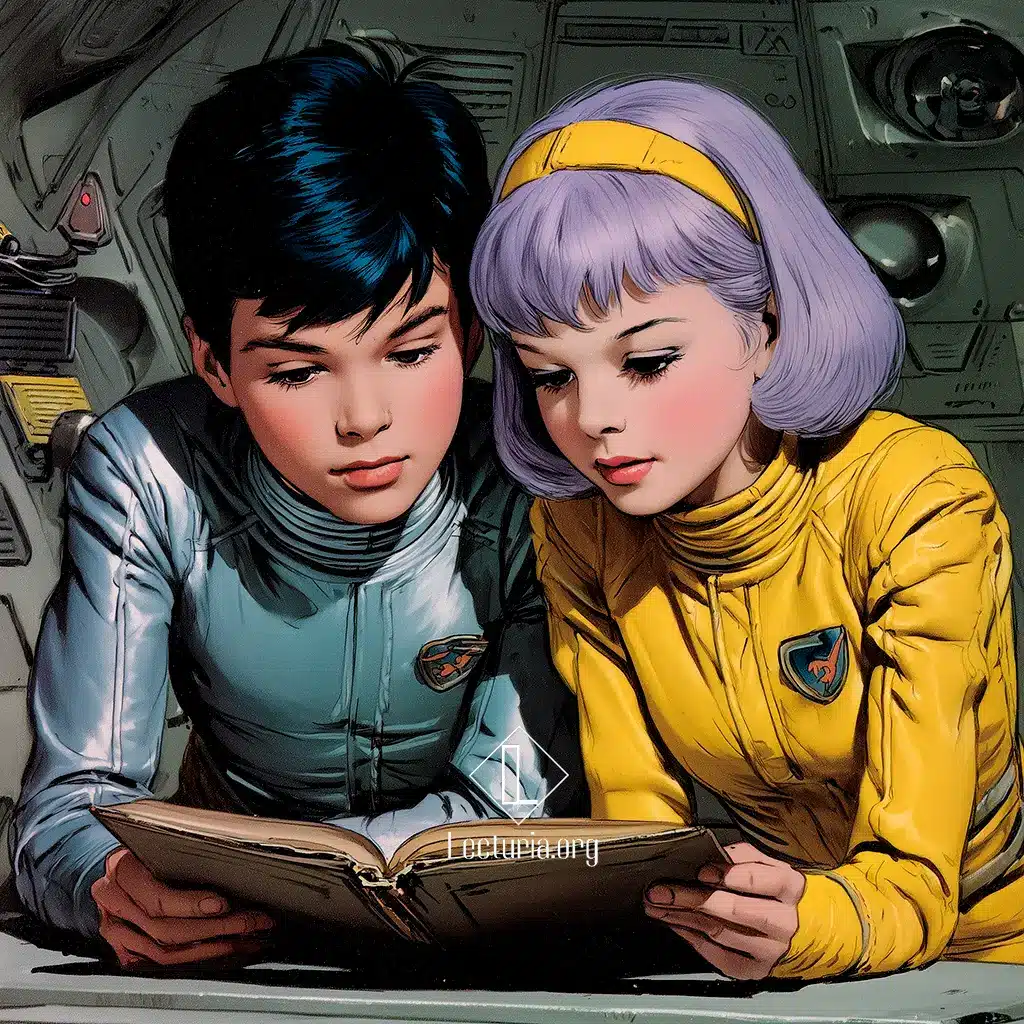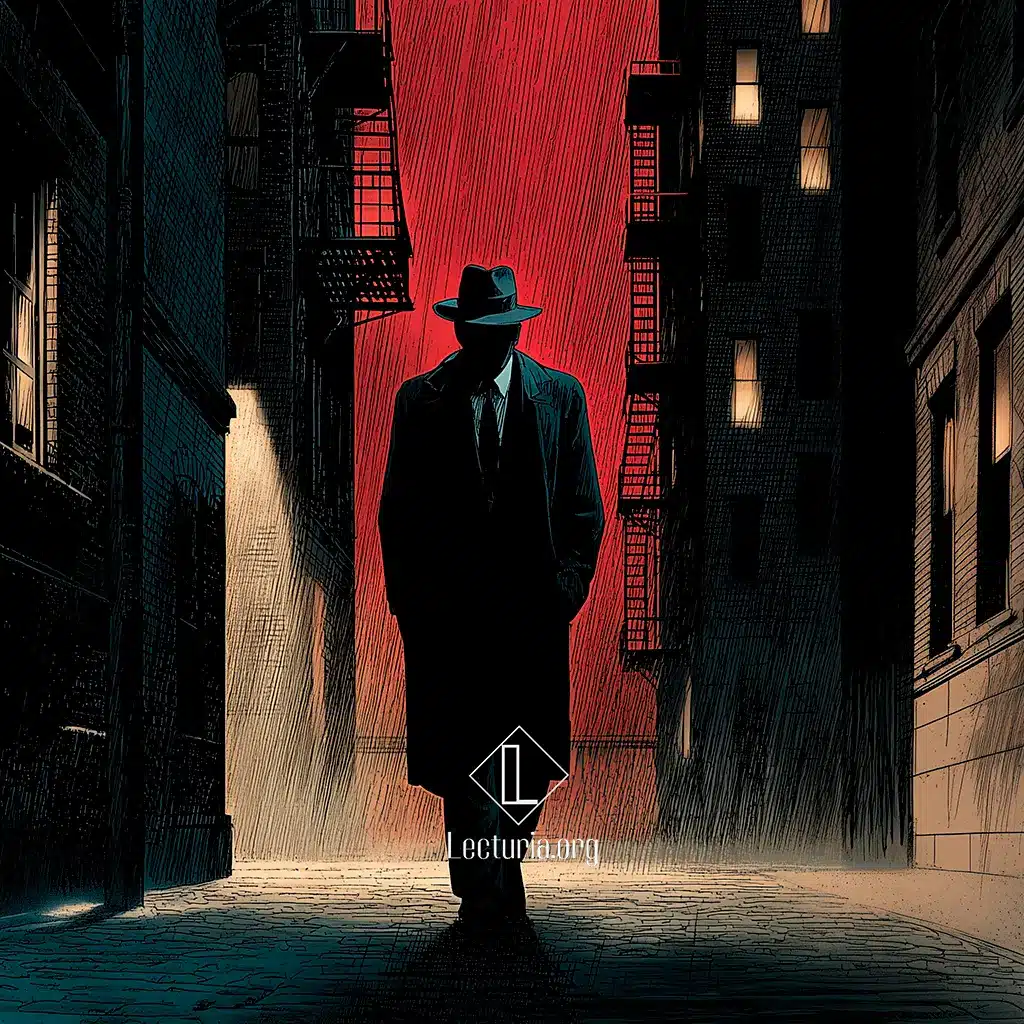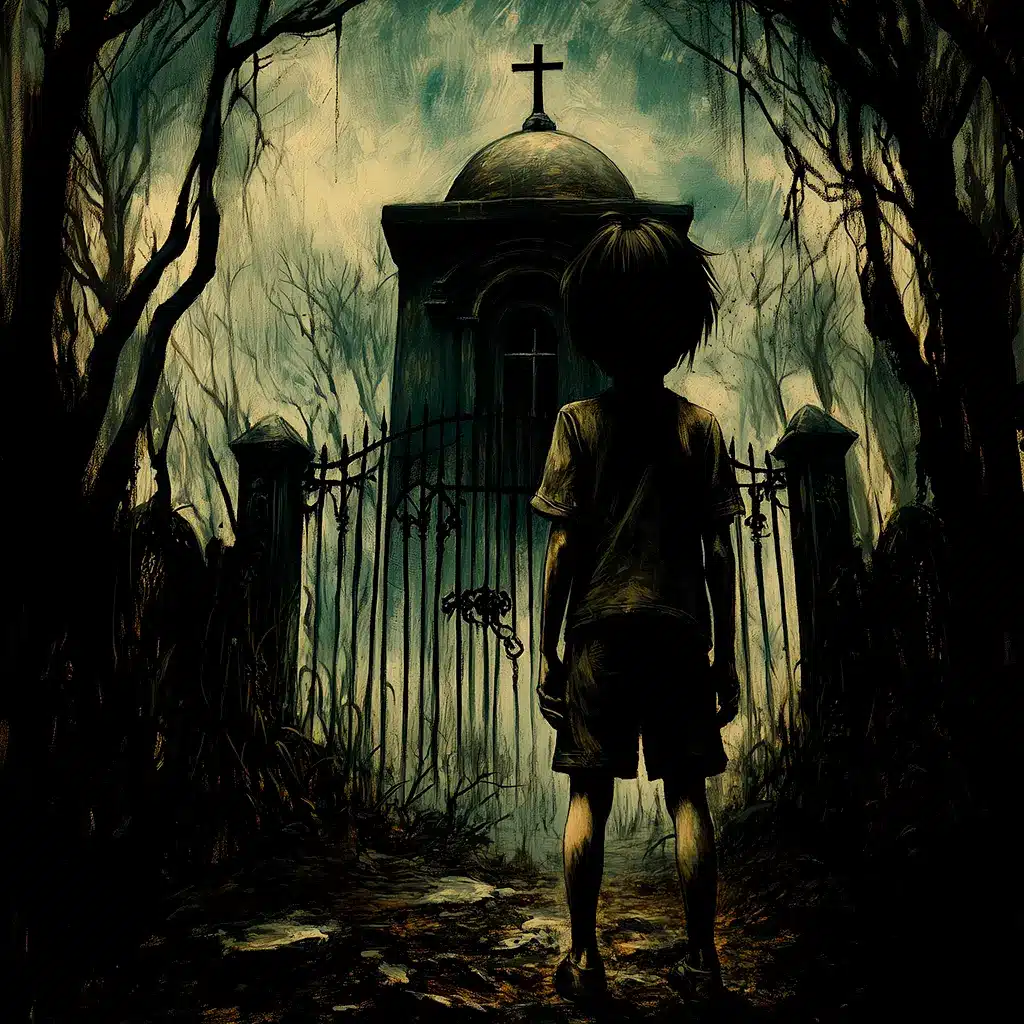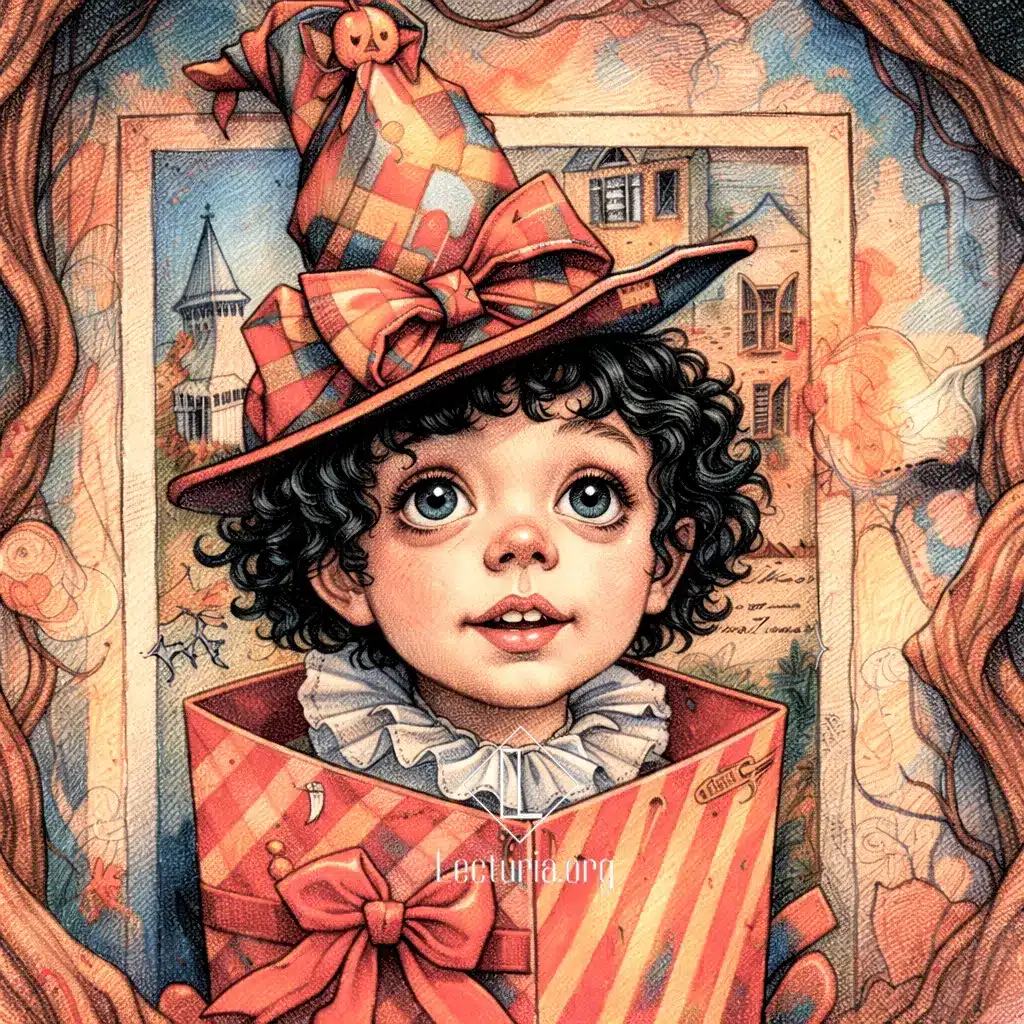Edwin is a thirteen-year-old boy who has spent his entire life confined within a vast mansion. His mother has taught him that the outside world is inhabited by deadly “Beasts” that killed his father, and that leaving the house is tantamount to dying. The house functions as a complete universe divided into territories Edwin crosses daily to attend school, where he is taught by a mysterious teacher who wears a hooded robe and glasses, so that her face cannot be seen. One day, Edwin discovers an open door that leads to a tower from which he sees the outside world for the first time. Shortly afterward, after celebrating his birthday, he finds his mother unconscious in the Parlor. He looks for his teacher, but all he finds is her robe, her glasses, and her makeup. With no one to stop him, Edwin goes through the garden, crosses the iron gate, and steps into the real world, shouting with joy that he is dead—since that is the only word he knows to describe the outside.





